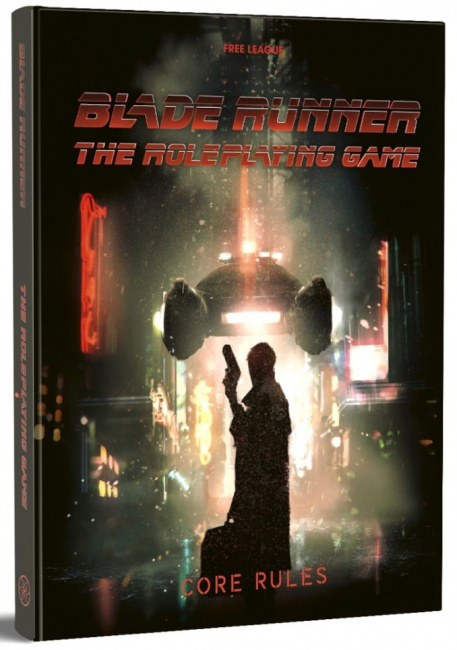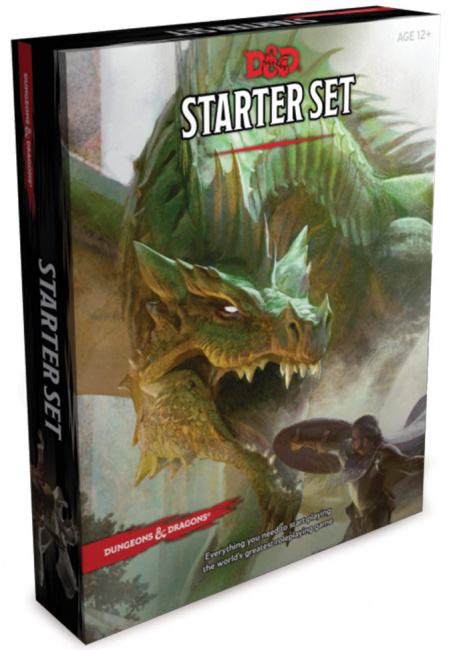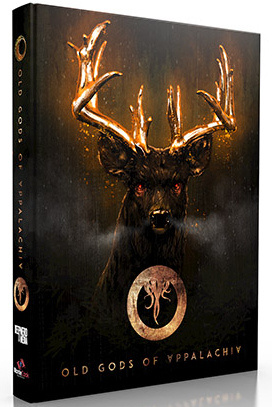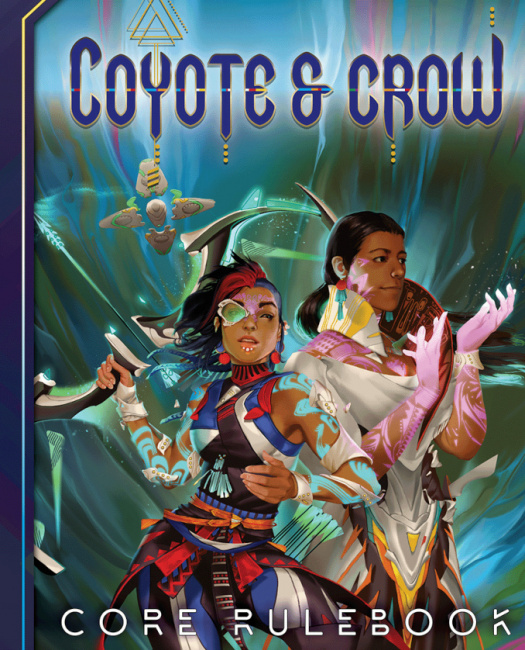The Merchant’s Anvil is a monthly column by Paul Alexander Butler, owner of Games and Stuff in Glen Burnie, Maryland and co-owner of Gaming Days (parent company of Free RPG Day), that focuses on helping retailers craft sales strategies and identify trends in the games market. This month, Butler uses the tabletop RPG conversation on Twitter to look at the opportunities in the RPG business missed by many retailers.
Are you on Twitter? I’m on Twitter.
I know, I get it, we’re all getting older and getting on whatever today’s flavor-of-the-month social media platform has big “How do you do, fellow kids?” energy. And I do sincerely hope you get that reference.
At any rate, if you’re not on Twitter, you’re missing some big tabletop gaming conversations, especially about board games and RPGs. Today, I want to talk about the RPG Twitter-verse and its response to highly successful licensed RPG Kickstarter campaigns.
Free League’s Blade Runner: The Roleplaying Game recently wrapped up its Kickstarter campaign, bringing in almost $1.68 million. This on the heels of Free League’s $1.74 million The One Ring Roleplaying Game, Second Edition Kickstarter last year, and the record-breaking $9.5 million that Magpie Games brought in for Avatar Legends: The Roleplaying Game.
The response on Twitter to these successes has been interesting. A lot of the chatter has suggested that these huge IPs are somehow sucking all the money out of the indie projects that are out there, both crowdfunded and otherwise. In a similar vein, many also think the dominance of Dungeons & Dragons is bad for the hobby overall.
Which of course is nonsense. I think the pool of potential RPG players is only going to be increased by the high visibility generated by these popular licenses.
One need only look at the impact Stranger Things had on RPG sales. The recent debut of Season 4 saw sales of the D&D Starter Set once again spiking in my store as customers came in looking to “play the game the Stranger Things kids were playing.”
Monte Cook Games just wrapped their biggest Kickstarter ever, for Old Gods of Appalachia. LaTia Jacquise, Community Relations Coordinator for the publisher, credited their success to “the support of the licensors and their community” and feels the game will “bring in a new group of folks who may not have played Indie RPGs or RPGs at all.”
My store Games and Stuff has always gone pretty wide on our RPG selection, and I’ve got over 20 years of retail sales data that suggests when a big IP or resurgent D&D brings increased sales to roleplaying, we see that reflected across the entirety of the RPG department.
Mark Truman, co-owner of Magpie Games told me, “One of the proudest moments I have had as a publisher is realizing that roughly 25% of our backers (more than 20,000 people) have never backed a Kickstarter before the Avatar Legends RPG. All of those people are folks who are new to crowdfunding, who have a chance now to join the amazing things happening in RPGs because something about this project got them to sign up and be part of this community. I know from personal experience that it’s hard to back just one project; the joy of RPGs is found in the many and diverse things happening all across our industry!”
You can’t tell me those thousands of backers were, in the absence of Avatar Legends or Old Gods of Appalachia, likely to give that money to some tiny indie RPG. Instead, those backers very likely represent an entirely new audience for RPGs, and potentially new customers for us as retailers.
Back to Twitter, in the conversations that followed in the wake of these large Kickstarters, I found again and again, gamers frustrated that their local game stores only carried Dungeons & Dragons, with sometimes a cursory nod to stocking a couple titles like Pathfinder or Star Wars, but rarely more than that.
So retailers, here’s your opportunity. Many indie RPG fans (or even non-D&D RPG fans) have disengaged with retail because we’re not serving their needs. This isn’t just about “indie” games. Take a look at your RPG department. If you were a roleplaying gamer who wasn’t interested in D&D, would your store’s RPG shelf be remotely interesting? Sure, maybe you’ve got a couple Shadowrun or Starfinder titles, but if all you’ve got is a representative item from a half dozen game lines, you’re telling those customers that the non-D&D gamer is an afterthought. If that customer is primarily a RPG player, and not interested in board games or miniatures, that customer is unlikely to return.
I’ll be honest with you. I don’t pay much attention to RPG turn rates in my store. I decide how much square footage I want to commit to non-D&D titles, and I keep that area full. Displayed spine-out on a bookshelf, you can fit a LOT of roleplaying game titles. Stock core books or starter boxes, a single unit deep, and if it sells restock it, and only then add a supplementary SKU from the line.
Look, here’s the thing. Your RPG section isn’t likely to have great turn rates. But the dollars per square foot might be pretty good, all things considered. And here’s a little secret. It’s pretty hard to be the best board game store, or the best Magic: The Gathering shop in your market. But do you have any idea how easy it is to be the best roleplaying game store?
Connor Alexander, owner of Coyote & Crow, LLC is currently on a road trip visiting game stores and spreading the word about his Coyote & Crow RPG. He has been frustrated to find that only about 25% of the stores he’s visiting are carrying the game or are even aware of it! Here’s a game that generated over $1 million on Kickstarter, has gotten major press coverage across the online geek media outlets, and is readily available from many of the major distributors.
“Literally everyone had D&D products,” says Alexander. “Most had Pathfinder. But after that there was a steep drop off in their selection.”
Try it. Bring in 10-20 new RPG core books from different lines and watch the conversations that follow. It’s certainly cheaper than a new miniatures or TCG line. Jacquise emphasized that smaller companies are far more accessible than larger ones and suggested that retailers have an “opportunity to reach out to indie creators for ways to best market their games.” You can’t carry everything, but showing broader stock than just the usual suspects tells your customers that roleplaying games matter. Who knows? You may find yourself with an entirely new customer base on your hands and could also see increased sales on everything from dice to battle mats to dice trays and more.
The opinions expressed in this column are solely those of the writer, and do not necessarily reflect the views of the editorial staff of ICv2.com.
Source: ICv2






